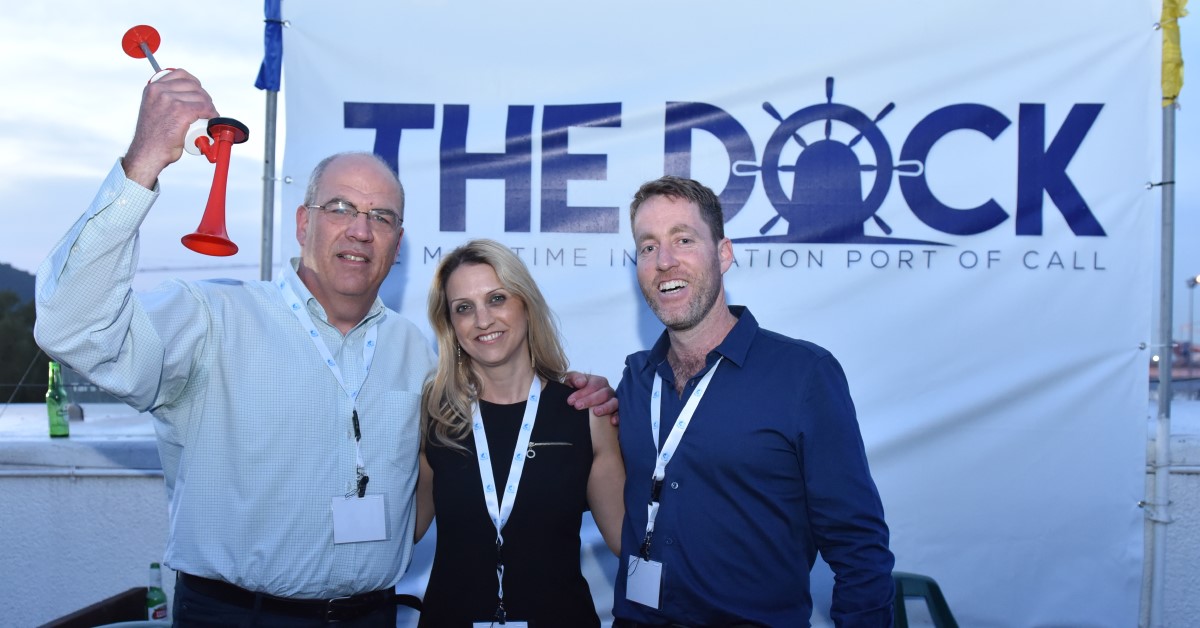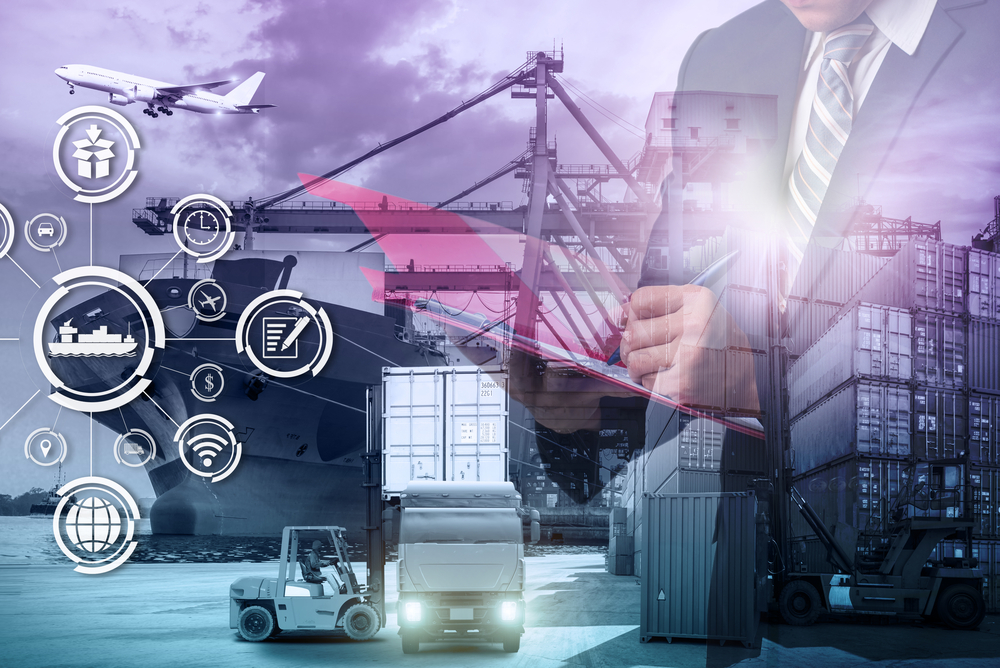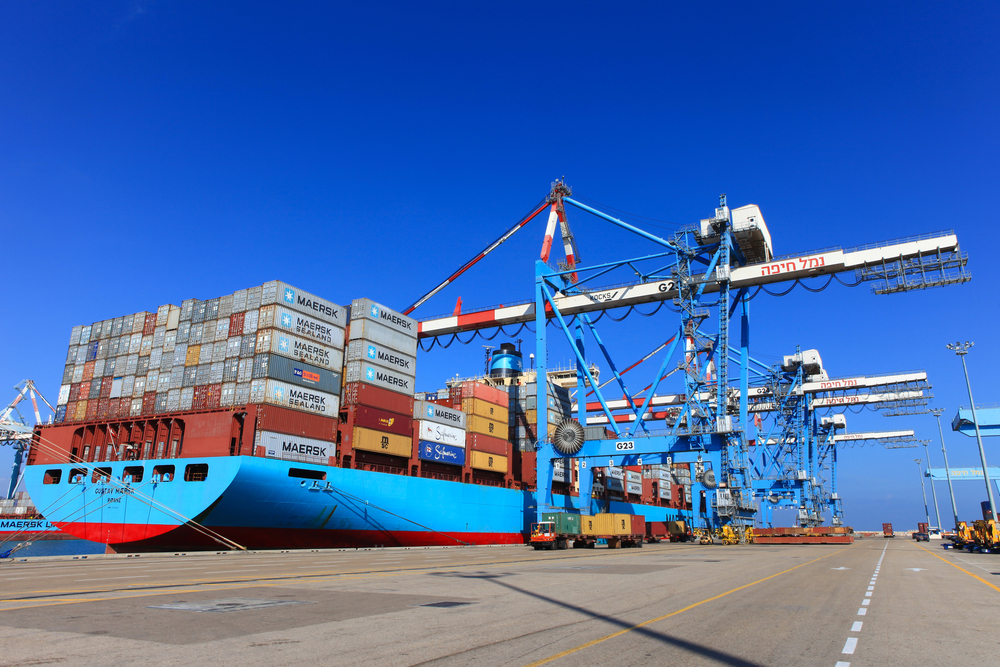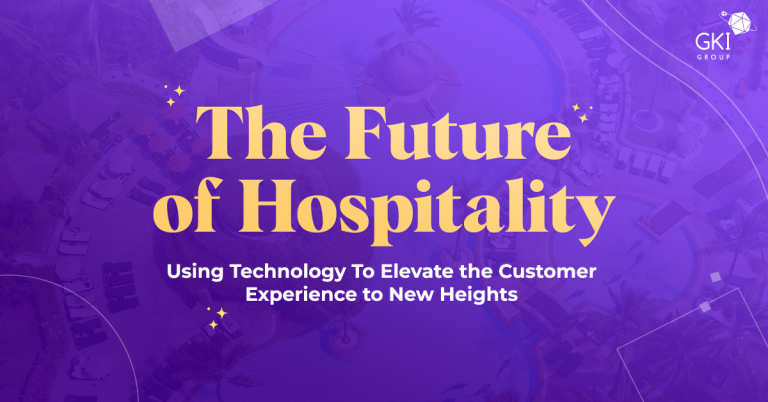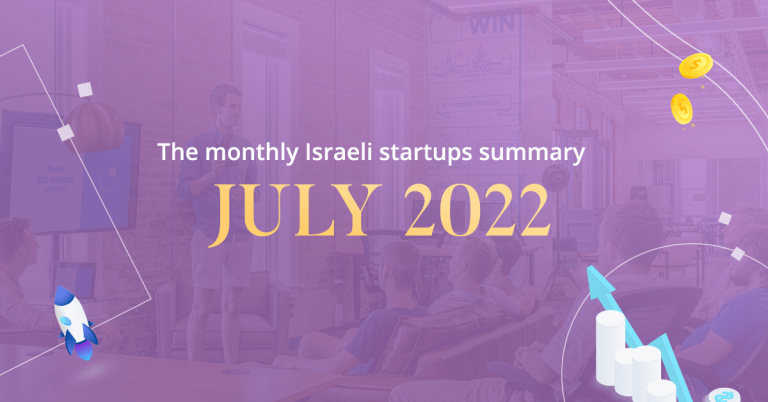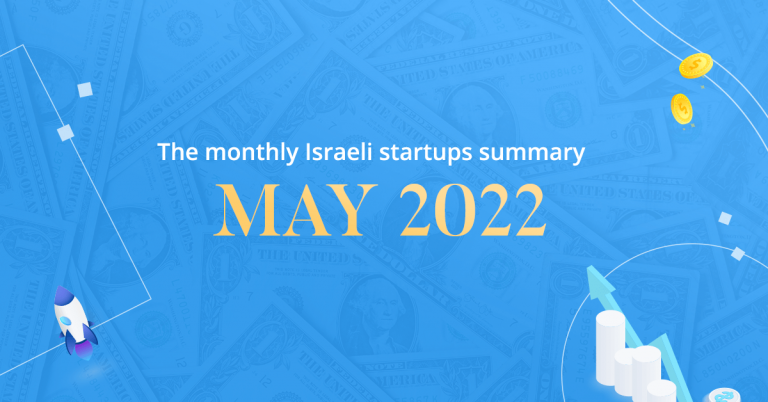Hannan is busy, together with his partners – Nir Gartzman and Noa Schuman, in fulfilling a vision combining two of the things he loves the most: Technology and the Maritime domain.
theDOCK Innovation Hub is located in Haifa and was founded a year ago by Hannan, the CEO, and Nir Gartzman, the COO, with one goal in mind: To make Israel become the Startup Nation for the Port, Maritime and Logistics sectors as well.
They’re hoping to see more Israeli startups joining the revolution. Looks like they’re on the right track.
Well, all aboard? We’re sailing!
So, who are you? Tell us a bit about yourself.
I’m a “graduate of the Israeli hi-tech market”. I spent my career in different management roles in hi-tech companies, more specifically enterprise software companies. The main chapter was with ClickSoftware, which was a public company traded on the NASDAQ. I spent there 17 years of my career in several management positions – COO, President, and most recently as Co-CEO – an experience that has exposed me to many of the considerations of a growing software company in Israel.
Since I left Click about four years ago, I also had the chance to experience the Israeli hi-tech ecosystem from two additional angles. One, I served as the Deputy Chief Scientist (The Israel Innovation Authority) so I got to see how the government supports the hi-tech ecosystem, and I also consulted a large private US-based Private Equity firm, Francisco Partners, on a few deals they did in Israel, so I got to see how a Private Equity firm is looking at the Israeli market.
So, all in all, my career experience has been in high tech, but at the same time during the last 30 years, I maintained a special passion towards the maritime sector. This started in the Naval Academy which I graduated and then served as a patrol board commander and as second in command of a missile frigate, followed by many years of reserve duty in the navy. Today I am an avid sailor with a boat in the Herzliya Marina.
So, I’m basically merging now those two worlds, the world of hi-tech and the maritime domain and I’m very excited to do that first time in my life.
Why have you decided to establish a hub all about maritime innovation? How did it all begin?
The idea to do what we do is based on two important observations that Nir and I reached about 12 months ago.
The first observation was that the maritime sector which has been traditional and conservative for decades and did witness technology-driven evolution was not yet disrupted by technology. That evolution improved certain operational metrics but did not change the business paradigm so far. So, the first observation is that the coming few years may witness a true revolution. Companies in the port, maritime and logistics sectors will be jockeying for repositioning driven by technology.
The second observation was that Israel, the Startup Nation, has many technologies or talents that are very relevant for the expected revolution which I described in technologies such as IoT, Big Data, Cyber, AR/VR and many others. Yet, Israel doesn’t play a role today and does not move the needle in the maritime sector.
So these two observations triggered for us the opportunity and the decision to actually start theDOCK with a vision of leveraging Israeli technology assets in order to benefit the global port, maritime and logistics sectors. Or in other words – To make Israel the startup nation in the maritime sector as well.
Left to right: Hannan Carmeli, Noa Schuman and Nir Gartzman [Photo: Ezak Line Photographers]
What’s Maritime Innovation? Is it technology focusing solely on sea and vessel, or also regarding the port and shipments?
First of all, the short answer is all of the above, but I would like to mention a few areas that we found interest in.
First, any technologies which are advancing the future autonomous vessel is one area of activity. Another area is anything that streamlines and improves the customers’ experience in the logistics and transportation value chain. The third one is port and terminal operations optimization, including technologies involving algorithms to optimize the order in which containers are loaded, truck management and all that surrounds.
The fourth area is cybersecurity, the awareness of the risks and the exposure in vessels and import have increased significantly with few attacks we saw around the world. Last, is any technology that has to do with protecting the environment and increasing the safety in port and aboard vessel so there’s a lot of interest in such as well.
Besides the obvious reason, the port, why have you decided to open theDOCK in Haifa?
First of all, as you mentioned, we wanted to be close to a port area, but we are cooperating with all the Israeli ports, specifically port of Ashdod and port of Haifa.
We wanted to have one leg outside the port for access reasons and one leg inside the port and for the two legs not to be far from each other, so we decided Haifa was a good choice for that. Given the Technion and Haifa University as well as the presence of multinationals nearby such as R&D Centers for Microsoft, IBM, Google and others, we believe the trend here in Downtown Haifa in terms of innovation and startups opening up will continue.
How’s the maritime innovation and technologies in Israel compared to other countries?
Well, there are already a few relatively well-known Israeli startups such as Windward, Freightos, Wave and Loginno which have made progress and are creating awareness around the world.
The model that we are looking at is the automotive model. Israel was never known in the world as the place to manufacture cars, nevertheless today Israel is considered to be a superpower for the future technologies of autonomous vehicles. Each and every car manufacturer that respects itself has an R&D facility or a scouting office here in Israel. This proves the point that you do not need to be a maritime cluster country in order to attract leaders around the world to have interest in innovation coming out of Israel. As a matter of fact, there are many maritime shipping companies, survey companies, global terminals and vessel system manufacturers which are showing a lot of interest in technology and innovation coming out of Israel. Many of them are aware of the Startup Nation and the great talent and creativity which is present in Israel.
How many maritime startups are there in Israel?
Well, I believe that when we started about a year ago there were maybe 3 or 4 which were already relatively known in and outside of Israel and an additional not-so-long tail of 8-10 other ones. Our plan is to groom and nurture about 15 early stage startups over the coming 12 to 18 months in our platform, our hub. We believe that there are going to be additional 15 that will grow outside our portfolio, and together with the 10 or 15 that we have already today, we’ll have around 50 startups. When we get to that point, we will have the critical mass to attract attention to Israel in that sector.
How many startups are sitting in your hub?
We are in the process of making investment decisions in the first 5 portfolio companies, and we identified additional 10 which we have interest in and would like to keep close relations with. Some will be located with us, and some are going to be visiting our hub once a week or two in order to get updates, meetups and those kinds of things.
Can you tell me about 2-3 startups you’re working with?
The first one is Loginno. They are installing intelligent sensors on containers which allow the measurement and the reporting of different metrics of the container. The obvious metrics are location, temperature, movement, vibration and such, but they are also working on an interesting way to measure additional metrics of the container as well.
The second one from a totally different area and dimension is a startup called PickAPier, which is looking to optimize the berths usage in marinas for the benefit of marina management, berth owners and visitors alike.
What is happening in the accelerator? What do you offer startups?
First of all, we have a specific message to each one of the stakeholders: startups, investors, and global leading corporates as to what they get for working with us, from being around the table, and what is requested of them. Basically, it’s a true win-win-win proposition among the three.
Startups which are admitted to the program are offered early stage investment, but more importantly, they get go-to-market services and support: They can benefit beta testing or pilot with one of our strategic partners or be offered product design help by leading corporates in the space. That meeting between the startup and the need coming from the market is what creates a very productive hub.
In the future, we plan to offer follow-on investment in those startups. Today, we are only working in the early stage area, but our roadmap includes a way to support startups in more advanced stages as well.
Port of Haifa, Israel. [Photo: Shutterstock]
We heard you held a major event recently, what was it about?
We did hold a major event under the title “Technology on the Water” that took place April 26th here in Downtown Haifa on a rooftop which oversees the port of Haifa. The event was sold out, there were over 300 participants which attended what was a show of force of a new emerging community of people and parties which had one thing in common – interest in promoting Israeli technology and innovation to benefit the future port, maritime and logistics sector.
The makeup of the audience were founders and entrepreneurs, some of them looking to develop technologies for this sector. Others were investors interested capitalizing on the opportunity by investing in our fund. Present were also leading corporates from the sector, many of which are internationally known, and traveled all the way to Haifa from places like Denmark, UK, Italy, Greece and other locations.
We had a keynote speech delivered by an executive from Maersk, but the main part of the event was a pitch by six startups that presented 7 minutes each in front of a prestigious panel of judges such as executives from the global companies, head of the Israeli Innovation Authority, maritime government officials, and port executives. At the end of the evening, the audience was given the chance to vote and select their favorite startup.
Who was the selected startup?
The audience’s favorite was a startup called AIDock (Not to be confused with AIDoc) which are developing an interesting AI-based solution, a learning algorithm aimed at streamlining and simplifying the process of clearing customs.
Do you get any support from the Israeli government or the municipality of Haifa?
Absolutely yes.
I think that one of the unique things about Israel is what’s called PPP, the Private Public Partnership. We are working very with the Innovation Authority and government ministries and agencies which are supporting the connection between innovation on the one hand, and what’s known as “traditional industries” on the other hand. Obviously port and maritime fall under that bracket, so there is a lot of support from the government in order to connect the two together and we are leveraging and benefiting that support.
In terms of the municipality, there is a strong vibe in Haifa right now to establish a startup community in the downtown area. We are looking to leverage the talent and opportunity part of which is to cooperate with the municipal leadership.
Where do you think the maritime technology is heading in the next couple of years?
I believe that the maritime sector is going to see a revolution on few fronts, one will be with vessels becoming hybrid, smarter, more intelligent and eventually autonomous. Of course, as a part of that, there will be a significant demand to increase the cyber protection capabilities as becoming more autonomous means becoming more vulnerable.
Another area in which we expect progress in is making the import/export and logistics value chain more user friendly and more competitive.
I expect us to witness many initiatives of optimization that will reduce cost and increase the competitiveness of various players in the sector.
Last, there’s a significant trend of becoming greener, being more aware of environmental challenges and to safety considerations, so I believe we’ll see technology emerging to support those as well.
As we saw, the maritime innovation sector is in its infancy in Israel compared to other sectors, but there’s a lot of international interest in startups operating in that field and newer startups and emerging technologies, from smarter vessels to greener solutions.
theDOCK Innovation Hub offers the only micro-fund and acceleration services dedicated to maritime technology and is here to help Israel get on the global map, or more specifically, “on the dock”, in this sector.
Are we going to see 50 Israeli maritime startups in the next couple of years? Guess we’ll just have to wait to find out.
If you’re a Maritime-oriented startup, an investor or Leaders who wish to get exposed to technology coming out of the Startup Nation, theDOCK is looking for you!
Visit their website: https://www.thedockinnovation.com/
